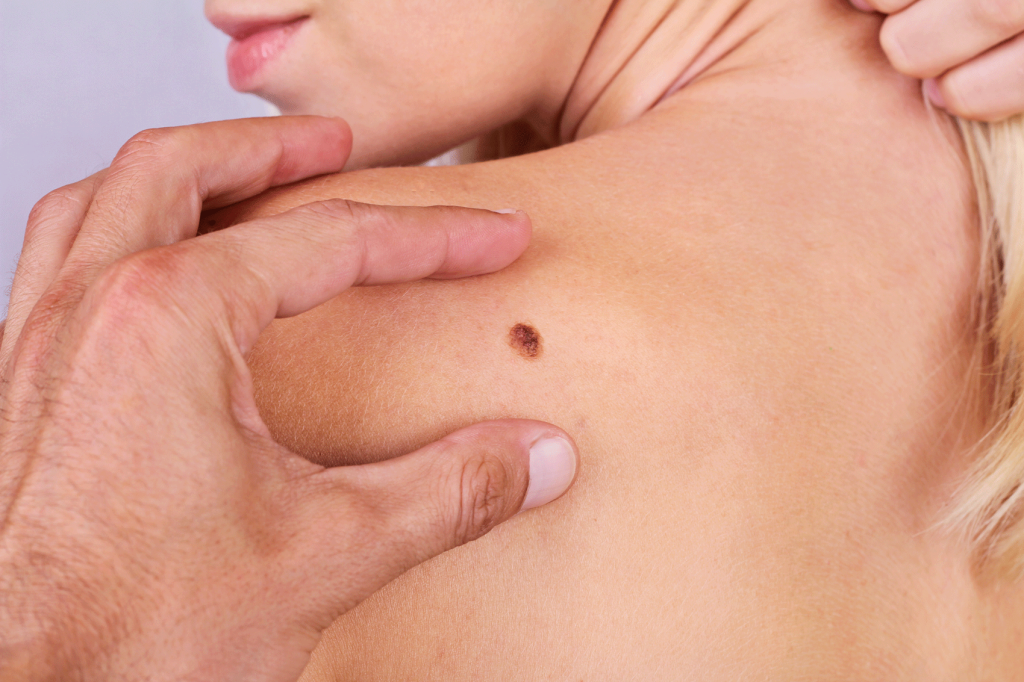What is psoriasis?
Psoriasis is a chronic autoimmune condition that tends to run in families and accelerates the growth cycle of skin cells. It is characterised by a rapid buildup of cells on the skin’s surface, forming scales and red patches and plaques that can sometimes be itchy and even painful. Psoriasis in the folds of the skin, for example groin or armpits, may not be as scaley as other body sites.
Psoriasis is a long-term (chronic) disease that can affect anywhere on the body including the nails, scalp, genitals and face. There is no cure, but it can be managed and controlled effectively with the correct treatment.
Types of Psoriasis

Plaque Psoriasis
The most common form, causing dry, raised, red skin lesions (plaques) covered with silvery scales.
Guttate Psoriasis
Often starts in childhood or young adulthood, characterised by small, water-drop-shaped sores on the trunk, arms, legs, and scalp. This type is commonly reported to have appeared after a throat infection.
Inverse Psoriasis
Causes bright red, shiny lesions that appear in skin folds, such as under the breasts, in the groin, or around the buttocks.
Pustular Psoriasis
A rare form that causes white pustules (pin prick red dots containing non-infectious pus) surrounded by hot and inflamed, red skin.
Erythrodermic Psoriasis
This occurs if psoriasis spreads to cover over 90% of the body surface area. Patients tend to feel unwell due to the amount of heat and water loss from the inflamed skin and develop ‘entire’ full body redness that can itch or burn.
Symptoms of psoriasis
Psoriasis can vary from person to person but commonly patients experience:
- Red patches of skin covered with thick, silvery scales
- Dry, cracked skin that may bleed if scratched or traumatised
- Itching, burning, or soreness
- Thickened, pitted, or ridged nails
- Swollen and stiff joints
- Scaling and red, hot patches through the scalp
- Rash that appears over a scar or tattoo – this is known as ‘koebernisation’ when sites of skin trauma develop psoriasis
Treatment Options
While there is no cure for psoriasis, at Cathedral Dermatology, our consultant can offer you a tailored treatment plan to enable you to manage symptoms, control your flares and make it easier to get back to being yourself and your usual routine.
Topical Therapies
Your personalised treatment plan might include topical treatments, including moisturisers and medicated creams and ointments that reduce inflammation. These can include corticosteroids, tar based products, vitamin-D based treatment or non-steroid anti-inflammatory agents.
Topical Therapies
Phototherapy
Phototherapy
For more severe cases, phototherapy or ‘light treatment’ works for some more stubborn cases of psoriasis. At the present time, however, phototherapy is not available at Cathedral Dermatology Clinic. Oral retinoid, namely Acitretin, can be used in certain groups of patients to control their psoriasis.
Injectable medications
Beyond these treatments, some severe cases require treatments including oral or injectable medications that will control and suppress the immune system, but that require pre-screening blood tests, close oversight and regular review by a dermatologist of your skin and blood tests. If your skin is severe enough, our dermatologist can optimise your topical therapy whilst discussing suitability for these medications, then make onward referrals to the appropriate in-trust dermatology team.
